
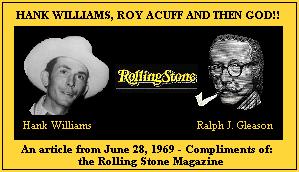
|
compliments of the Rolling Stone Magazine - June 28, 1969 By: the late Ralph J. Gleason Hank Williams came out of the bathroom carrying a glass of water. He was lean, slightly stooped over and long-jawed. He shook hands quickly, then went over to the top of the bureau, swept off a handfull of pills and deftly dropped them, one at a time, with short, expert slugs from the glass. I really didn't know doodley-britt about Country-Western Music except that I dug Ernest Tubb and T. Texas Tyler and thought that "You two-timed me one time too often" was a great song. But I was writing about popular music for the San Fransisco Chronicle and Hank Williams was by God popular and a fat-ish man with big glasses named Wally Eliott, who doubled as a C/W disc jockey under the nom de disque of Longhorn Joe was presenting Williams in several one nighters, So I went to talk to him. The bathroom was in the Leamington Hotel which is the biggest hotel in Oakland and could have been any one of the standard Muhlbach or old Statler hotels anywhere in the U.S., the salesman's shelter. All I knew about Hank Williams was that he made records as Luke the Drifter and under his own name and had sold millions, and he sure wrote good songs. I was a little surprised by the pills, but then he looked pale and thin, and had deep-set eyes and might have been hungover for all I knew. It was June 1952, six months before he died in that car's back seat on New Year's Day, with everybody denying the first report that it was from an overdose. So he threw the pill boxes in his suitcase, and we went down to the coffee shop, Hank Williams talked and ate breakfast, and I wrote it down. "I've been singing ever since I can remember," he said. He was 29 then, doing 200 one-nighters a year and grossing over $400,000, he said, "My mother was an organist at Mt. Olive, Alabama, and my earliest memory is sittin' on that organ stool by her and hollerin'. I must have been five or six years old and louder than anybody else. "I learned to play the git-tar from an old coloured man in the streets of Montgomery. He was named Tetot and he played in a coloured street band. They had a washtub bass. You ever seen one of them? Well, it had a hole in the middle with a broom handle stuck in it and a rope for the strings. "I was shinin' shoes and sellin' newspapers and followin' this ole Nigrah around to get him to teach me to play the git-tar. I'd give him 15 cents or whatever I could get a hold of for a lesson. When I was about eight years old, I got my first git-tar. A second-hand $3.50 git-tar my mother bought me. Then I got a jazz horn and played both of them at dances and had a band when I was 14 or 15." Hank went on the air on WSFA Montgomery when he was still in school and, after he met Fred Rose, he cut his first records for Sterling. "One session, $90 for four sides including 'Never Again Will I Knock ON Your Door.'" That started it all, MGM signed him. He starred with the C&W radio programs for years and had an incredible string of hit records in the days of the 78 rpm disc and his songs were recorded by many other performers, too. "A good song is a good song," Hank said as he ate. "And if I'm lucky enough to write it, well....! I get more kick out of writing than I do singing. I reckon I've written a thousand songs and had over 300 published." Hank surprised me by referring to his music as "folk music." "Folk music is sincere. There ain't nuthin' phony about it. When a folk singer sings a sad song, he's sad. He means it. The tunes are simple and easy to remember and the singers, they're sincere about them. "I don't say I ever write for popularity. I check a song by it's lyrics. A song ain't nuthin' in the world but a story just wrote with music to it. I can't sing 'Rag Mop' or 'Mairzy Doats.' But the best way for me to get a hit is to do something I don't like. I've been offered some of the biggest songs to sing and turned them down. There ain't nobody can pick songs. Because I say it's good, don't mean it'll sell. "I like Johnny Ray. He's sincere and shows he's sincere. That's the reason he's popular. He sounds to me like he means it. What I mean by sincerity, Roy Acuff is the best example. He's the biggest singer the music ever knew. You booked him and you didn't worry about crowds. For drawing power in the South, it was Roy Acuff and then God !! He done it with 'Wabash Cannonball' and with 'Great Speckled Bird'. He'd stand up there singing, tears running down his cheeks." Acuff was his idol and Fred Rose, his inspiration. "Fred Rose, it was my good fortune to be associated with him. He came to Nashville to laugh and he heard Acuff and said, 'By God, he means it !'" Sipping coffee and talking, Hank went on about now forgotten singers like `Bill` Darnell, about Roy Acuff and Fred Rose and Ernest Tubb and Bing Crosby, about "Wheel of Fortune" and "I Love You So Much It Hurts Me." Pretty soon Wally Elliott looked at his watch and said he had to take Hank off somewhere to plug the night's show: Hank was looking a little better now, the paleness under the close shaven jaws had been replaced with some colour and wasn't quite so peaked. So they split and I split and later that night I drove out to San Pablo Hall which is 'way out past' El Cerrito and Richmond and almost to Vallejo. San Pablo Avenue, possibly the longest main street in the world, runs for almost 20 miles from downtown Oakland on out there and in 1952 there were no freeways. When you got to San Pablo, it looked like every place else only a little raunchier, and San Pablo Hall was a one story white building on a lot a block off the Avenue. You parked in the mud and walked past a tree up to the door and inside there was a long room with a bandstand at one end and a bar in an annex at one side. Wally Elliott, who had been wearing a business suit in the afternoon and looked like one of Ralph Williams' Ford salesmen, was a western dude now, with full Grand Ole Opry regalia, Stetson hat, hand made boots. The whole bit. The band was terrible. I only remember that about them and shortly after I got there Hank Williams went on. He looked just like he looked at the hotel except that now he had a western hat and a guitar. When he sang, he looked like he squeezed himself to get the notes out sometimes and he seemed shorter somehow than when we were talking in the coffee shop. He did them all, all his hits, "Jambalaya," "Lovesick Blues," "Move it On Over". I don't remember him singing any of the Luke the Drifter religious songs. Not even "I Saw The Light". But he did the barrelhouse blues and the bar room ballads, "Cold, Cold Heart" and "Hey, Good Lookin" and "Your Cheatin' Heart" And he had that thing. He made them scream when he sang and that audience was shipped right up from Enid or Wichitaw Falls intact (like Elia Kazan shipped the bit players for Baby Doll up from the deep south to Long Island for a scene). There were lots of those blondes you see at C&W affairs, the kind of hair that mother never had and nature never grew and the tight skirts that won't quit and the guys looking barbershop neat but still with a touch of dust on them. "Shit-kicker dances" the outside world called them then but some great people came through to play for them and this time it was Hank Williams and his Driftin' Cowboys it said, but I believe now, (as I suspected then) that the only Driftin' Cowboy was Hank. At the intermission, it was impossible to talk to him. He was a little stoned and didn't seem to remember our conversation earlier in the day and the party was beginning to get a little rough. They were whiskey drinkers and so I gave them room, looked around a while and then went on back out. Six months later when I read he had died I remember him saying in that Oakland hotel coffee shop, how much he loved his Tennessee ranch but how little time he got to spend there because he was on the road so much. "Last time I was there it rained," he said sourly. And then he added that he was stocking the ranch with cattle and his ambition was to retire there and watch "them cattle work while I write songs an' fish." He never did, of course, I had no idea how tortured a man he was when I saw him. It came through more in his performance. He didn't cry but he could make you cry and when he sang "Lovesick Blues" you knew he meant it. So he died in the back seat of a car en route from one gig to another, from one ratty dance hall to another ratty dance hall, while the world gradually came to sing his songs and his Hollywood-ized life was shown and reshown on late night TV and the court fight for his estate went on for years. Still goes on, I think, that legal fight, like some ghost walking the pine hills for eternity. Grave Photo of: Rufus Payne a.k.a. Tee-Tot (Image courtesy of Railroad Guy) |
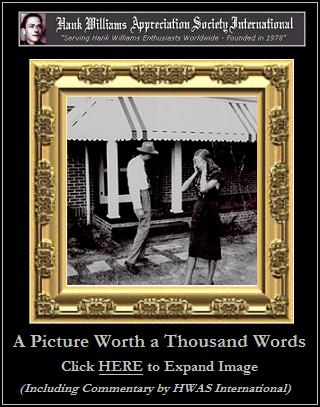
 Click HERE to view our collection of RARE HANK WILLIAMS POSTERS & HANDBILLS
Click HERE to view our collection of RARE HANK WILLIAMS POSTERS & HANDBILLS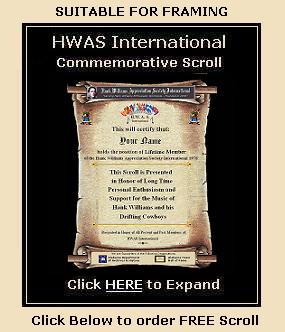

 Click HERE and read a Brief History of the
Click HERE and read a Brief History of the Click HERE and read the nice letter to HWAS
Click HERE and read the nice letter to HWAS Click
HERE to View HWAS Membership POSTER
Click
HERE to View HWAS Membership POSTER Click
HERE to View: HWAS Membership TEXT FILE
Click
HERE to View: HWAS Membership TEXT FILE Click
HERE and View a HWAS Membership TEXT FILE
Click
HERE and View a HWAS Membership TEXT FILE Click
HERE to View the HWAS Membership Applications
Click
HERE to View the HWAS Membership Applications Click HERE to READ a Fascinating Chapter on Hank Williams (IMAGE FORMAT)
Click HERE to READ a Fascinating Chapter on Hank Williams (IMAGE FORMAT) 


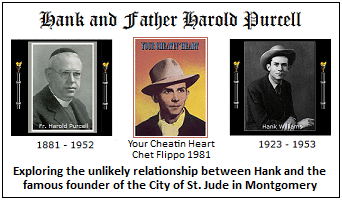

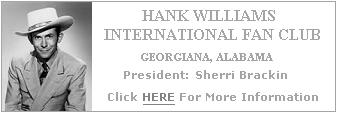



 Click
HERE for UPDATES on Hank's 50th Anniversary events in Germany
Click
HERE for UPDATES on Hank's 50th Anniversary events in Germany Click
HERE and view a Photo of above mentioned German 'Hank' Event
Click
HERE and view a Photo of above mentioned German 'Hank' Event
 Click HERE and read: "MY FASCINATION FOR HANK WILLIAMS" written
Click HERE and read: "MY FASCINATION FOR HANK WILLIAMS" written  Click
HERE to view a 2013 Photo of Mr. Reinhardt receiving a certificate
Click
HERE to view a 2013 Photo of Mr. Reinhardt receiving a certificate



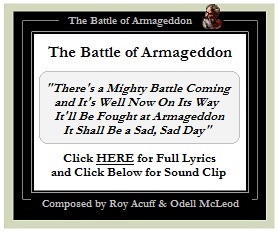
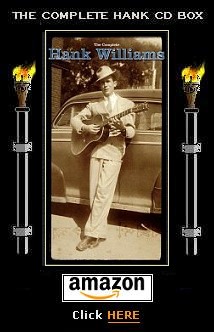

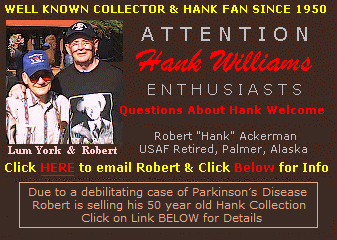
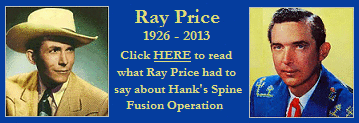

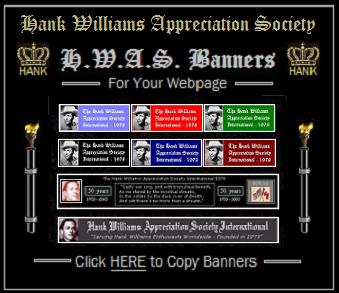
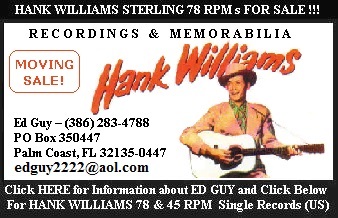









 Email: Web Administration wwwebmonitor@yahoo.com
Email: Web Administration wwwebmonitor@yahoo.com 
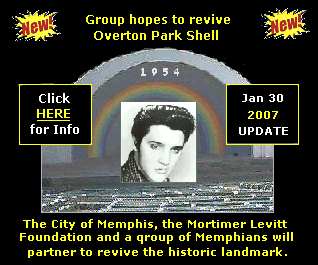



 _
_
 _
_
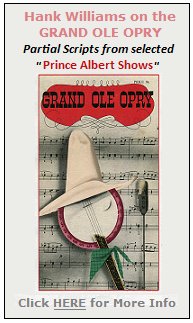



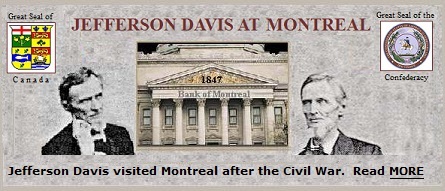
 Click HERE to read Newspaper Article entitled:
Click HERE to read Newspaper Article entitled:

